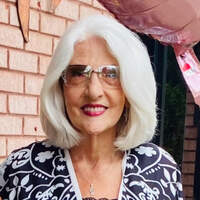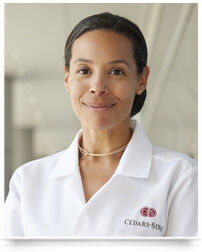Surgeon Q&A: Top 5 Complications After Heart Valve Surgery
Written By: Adam Pick, Patient Advocate, Author & Website Founder
Medical Expert: Joanna Chikwe, MD, Chair of Cardiac Surgery at Cedars-Sinai Medical Center
Published: December 14, 2022
Unexpected complications after heart valve surgery can be confusing, scary and frustrating for patients, their family members and friends. As a result, I am often asked important patient questions like “Are post-operative complications normal?” and “What are the most common types of complications after heart surgery?”
To learn more, we interviewed Dr. Joanna Chikwe, the Chair of Cardiac Surgery at Cedars-Sinai Medical Center in Los Angeles, California. During her extraordinary career, Dr. Chikwe has performed thousands of cardiac procedure with many involving heart valve repair and replacement therapies. In our community, Dr. Chikwe has successfully treated many patients including Leila Saeid, Claudio Landeros and Mavis White.
Key Learnings About Heart Surgery Complications
Here are key learnings from Dr. Chikwe’s interview about post-operative cardiac surgery complications:
- According to Dr. Chikwe, complications after heart surgery are not common. “Complications are really uncommon after heart valve surgery. Most patients will leave the hospital without suffering any of them.”
- Complication #1: Atrial Fibrillation. Approximately one-in-five patients will experience atrial fibrillation after heart surgery. Atrial fibrillation is an irregular heartbeat that typically resolves by itself in the first few weeks following cardiac surgery. Some patients may receive medication to treat atrial fibrillation and a small number of patients may require a DC cardioversion (a small electric shock) to return the heart back to normal rhythm.
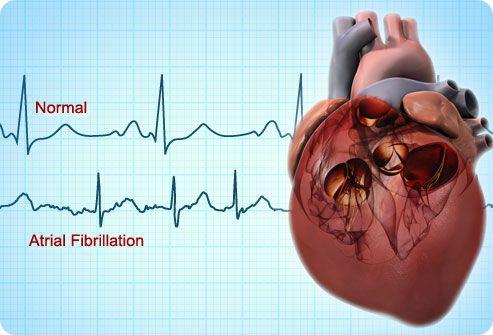
- Complication #2: Fluid Overload. The body’s natural reaction to trauma and stress is fluid build-up. As a result, patients may gain weight that is expressed as puffy hands or ankles and a swelling of the bones in the feet. To manage fluid overload, Dr. Chikwe may prescribe her patients Lasix to help the body reduce fluid. It’s important for patients to track their weight should they experience fluid overload. “If you see your weight going up a pound every day,” states Dr. Chikwe, “That’s definitely not calories and fat gain. That might be fluid overload, and that would be a sensible reason to call your cardiologist or your cardiac surgeon and just adjust the dose of diuretics that you’re taking.”
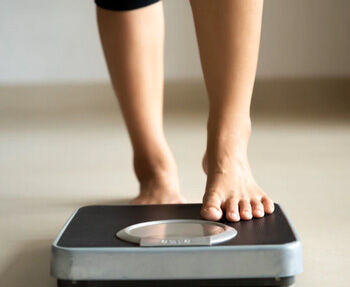
- Complication #3: Pain. Patients may experience both short-term pain during their early recovery in the hospital and long-term pain following discharge. Dr. Chikwe suggests there are several considerations specific to pain for patients who receive a traditional sternotomy incision or a minimally-invasive incision including the incision, the chest tube removal and the use of nerve blocks to greatly reduce pain and discomfort. Given medical advances in pain management, most of Dr. Chikwe’s patients leave the hospital on Tylenol or over-the-counter medication.

- Complication #4: Stroke. While a very serious concern, the patient risk of stroke is very low. “The overall risk of stroke for most patients is really, really low, less than half a percent risk with their surgery,” states Dr. Chikwe. “That’s because we have understood and learned so much about how to reduce the risk based on how we work things up before your surgery, how we preform the surgery, and how we manage things like your blood pressure, your heart rhythm, and your medications after the surgery.”

- Complication #5: Valve Replacement and Valve Repair Failure. Specific to heart valve replacements, it is possible that both mechanical and tissue valve replacements can fail. Biological valves, also known as tissue valves, typically last for 10-15 years. A failing heart valve may be re-replaced using surgical or transcatheter techniques. Valve repair failure is a little different, according to Dr. Chikwe. “We know that certainly in the mitral setting that about 10% of patients may have a slight or a more moderate leak at about 10 years,” states Dr. Chiwke. “After a good mitral valve repair, a small minority of them [patients] may need another procedure to fix that valve. Again, redo surgery is safe, and most patients, the vast majority, a mitral valve repair is a lifelong solution.”
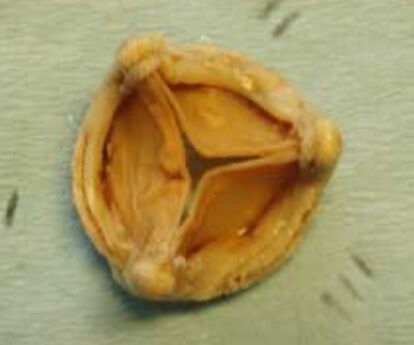
Many Thanks Dr. Chikwe & Cedars-Sinai!
Many thanks to Dr. Chikwe for taking the time to educate our patient community about complications after heart valve surgery. We also want to thank the entire Cedars-Sinai team for taking such great care of patients from the HeartValveSurgery.com community!
Related Links:
- See Dr. Chikwe’s Interactive Surgeon Profile
- Mitral Valve Repair: Different Approaches for Different Patients with Dr. Chikwe
- Dr. Chikwe Answers Female Patient Questions About Heart Surgery
- Patient Success Story: Leila’s Robotic Mitral Valve Repair
Keep on tickin!
Adam
P.S. For the deaf and hard of hearing members of our community, I have provided a written transcript of my interview with Dr. Chikwe below.
Video Transcript:
Adam: Hi, everybody. It’s Adam with HeartValveSurgery.com, and this is a special surgeon question and answer session all about the top five complications after heart valve surgery. I am thrilled to be joined by Dr. Joanna Chikwe, who is the Chair of Cardiac Surgery at Cedars-Sinai Medical Center in Los Angeles, California. During her extraordinary career, Dr. Chikwe has performed thousands of cardiac procedures with many involving heart valve repairs and heart valve replacements. Dr. Chikwe, it is wonderful to see you again, and thanks for being with us today.
Dr. Chikwe: It’s a pleasure to be with you, Adam.
Adam: Dr. Chikwe, we’re going to be talking all about complications after heart valve surgery, which, as you know, you can be very scary and frustrating for patients. To set the tone for the conversation, I’m curious. Are complications after heart valve surgery common?
Dr. Chikwe: No. Complications are really uncommon after heart valve surgery. Most patients will leave the hospital without suffering any of them. I’m kind of interested, though, to talk about the five common ones today.
Adam: Dr. Chikwe, let’s start with the first complication, which is atrial fibrillation. Can you talk about that?
Dr. Chikwe: Atrial fibrillation, which is just an irregular heart rhythm, happens to about one in five people after surgery, usually for a really short time that sorts itself out on its own. There’s a small number of people that sometimes need medication to correct the atrial fibrillation, and a really small number of people may need a procedure called a DC cardioversion. That’s a little bit of electricity to correct that atrial fibrillation.
Adam: Dr. Chikwe, great to hear about all of the strategies for managing AFib after heart valve surgery. Another question and complication I get from patients is all about fluid overload. Can you shine the light on what is fluid overload, and how do you take care of it?
Dr. Chikwe: Fluid overload is really caused by your body’s natural reaction to hang on to fluids as a response to any kind of trauma or major physical stress. The way that we treat that is usually with a medication such as Lasix that allows your body to get rid of that fluid slowly over a few days, even after you’ve gone home. You’d see fluid overload by looking at your hands. They might be puffy or your ankles You can’t no longer see the bones in your feet. One way to track it after you’ve gone home is to weigh yourself every day. If you see your weight going up a pound every day, that’s definitely not calories and fat gain. That might be fluid overload, and that would be a sensible reason to call your cardiologist or your cardiac surgeon and just adjust the dose of diuretics that you’re taking.
Adam: Great to hear, Dr. Chikwe. Another complication is pain, and that’s something I personally struggled with as I became addicted to Vicodin during my recovery. I’m curious to know. What are you and the team at Cedar-Sinai doing to help patients better manage pain after heart valve surgery?
Dr. Chikwe: Let’s talk about pain in the short term while you’re in hospital and then that longer term pain that might interfere with your quality of life after you’ve gone home. Everybody worries about this incision in the middle and thinks that’s going to be the most painful. It actually isn’t. You don’t have a lot of nerve endings in the middle of your chest. People don’t get a lot of pain from this incision when it’s closed really well. The chest tubes that sit inside your chest can cause a lot of discomfort. They usually come out in the first day or second after surgery, and people feel completely different and much better. The little incisions that we do inside with robotic repairs, those can be quite uncomfortable, and that’s why we use nerve blocks to really try and make those pain-free.
By the time you go home, you should have so little pain that it can be managed easily with Tylenol or over-the-counter medications. My strong advice is, if you’re getting more pain than that, have an early conversation with your primary care doctor or surgeon because that’s not normal, and we really want to sort it out so there are no long-term issues with needing narcotics and other drugs like Vicodin.
Adam: Dr. Chikwe, let’s talk about stroke as a complication and a really big concern for patients. What should patients know about stroke after heart surgery?
Dr. Chikwe: The overall risk of stroke for most patients is really, really low, less than half a percent risk with their surgery, and that’s because we have understood and learned so much about how to reduce the risk based on how we work things up before your surgery, how we preform the surgery, and how we manage things like your blood pressure, your heart rhythm, and your medications after the surgery.
Adam: Dr. Chikwe, very helpful. Now let’s talk about a complication that is what happens if your valve replacement or your valve repair fails? What happens next for patients?
Dr. Chikwe: That’s a great question. Let’s talk about valve replacements first and then talk about valve repairs. With valve replacements, if you have a tissue, a biological valve, the chances are that you could expect about 10 years out of it, a bit less if you’re younger, a bit longer if you’re older. When that valve starts to fail and that’s often picked up by annual echoes but you might feel symptomatic, that valve can be replaced either surgically or, these days, through a vein in your leg or an artery in your leg. The key thing to know is, at the time of the valve replacement, your surgeon will be trying to put the largest valve in place with the best technology to give you the longest lifetime out of that valve.
Valve repairs are a little different. We know that certainly in the mitral setting that about 10% of patients may have a slight or a more moderate leak at about 10 years after good mitral valve repair, and a small minority of them may need another procedure to fix that valve. Again, redo surgery is safe, and most patients, the vast majority, a mitral valve repair is a lifelong solution.
Adam: Dr. Chikwe, thanks for sharing all of this great information about complications, and I really want to highlight two things. One, it’s all of the strategies your team has put together there at Cedars for taking care of these complications, and two is something you echoed several times throughout our conversation, which is, if you’re having a complication, talk to your physician. That was great advice. On behalf of all the patients at HeartValveSurgery.com, patients all over the world, thanks so much for taking time away from your very busy practice at Cedars-Sinai in Los Angeles and being with us today.
Dr. Chikwe: Thank you so much, Adam. It is always a pleasure.



